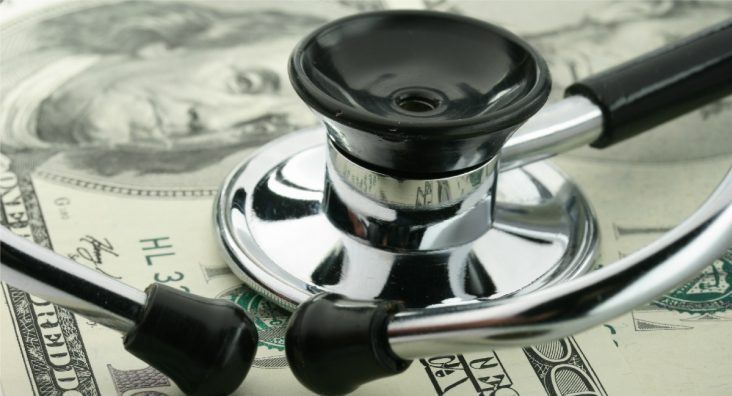Group pays off $35 million in medical debt for 23,896 Arkansans
by January 27, 2022 10:21 am 2,280 views

A group of community organizations is paying off more than $35 million in medical debt for 23,896 Arkansans in all 75 counties. It’s also making recommendations to prevent medical debt from accumulating in the first place.
The debt was purchased on the secondary market in bundled portfolios at a steep discount for $225,000. RIP Medical Debt coordinated the payment. Funding came from the Winthrop Rockefeller Foundation; Arkansas Community Foundation; Jackson, Miss.-based HOPE, a community development financial institution; and other donors.
The average eliminated medical debt was about $1,500 per individual or family. The beneficiaries were anonymous and couldn’t be chosen. They will receive a letter from RIP notifying them of their debt freedom.
The plan was unveiled Thursday (Jan. 27) during a virtual news conference hosted by Arkansas Asset Funders Network, a regional network of grantmakers; Arkansas Community Institute, a group that helps lower-income individuals build assets; and Hope Policy Institute, HOPE’s policy and advocacy arm. The event was titled, “We’re Still Hurting! From the ER to the Courtroom.”
The effort is meant to reduce medical and court costs on so-called “ALICE” individuals: Asset Limited, Income Constrained, Employed individuals, along with people of color.
RIP Medical Debt is a national organization founded in 2014. Its website says it has eliminated more than $5.6 billion in medical debt for nearly 3.2 million individuals and families.
In addition to announcing the debt forgiveness program, Arkansas Asset Funders Network, Arkansas Community Institute, and Hope Policy Institute shared policy recommendations that would lessen and prevent medical debt and medical-related court debts.
Diane Standaert, a senior leader with Hope Credit Union and the director of the Hope Policy Institute, said in an interview that the unpaid debts benefit neither the debtors nor the medical provider to whom the money is owed. The only entities that potentially benefit are those profiting off the old debt.
Meanwhile, she said individuals are trapped in “financial quicksand” that damages their credit scores and causes ongoing psychological stress. She said systemic policy changes are needed.
“We’re not going to solve this problem through one-off, one-time, individual one-on-one approaches,” she said. “There needs to be systemic reforms, and I think we have to remember that the existence of all of this debt, they all exist due to policy choices that have been made over many years in piecemeal decision-making ways.
“And so since policy decisions got us into this mess, it’s going to take policy changes and policy decisions to get us out and to make sure that folks who are struggling to get by have the support they need to live the life that they want to have,” Standaert said.
The recommendations included the following, among others:
– Enact state legislation protecting patients from out-of-network bills;
– Include medical debt provisions in state COVID-19 recovery plans;
– Pass state laws that protect consumers from abusive medical debt collection practices, limit medical debt reporting on credit reports, and cap medical debt interest;
– Identify local fines and fees that can be eliminated;
– End suspensions of driver’s licenses for failure to appear or pay fines; and
– Change state debt collection laws to protect consumers.
The groups say funders can increase individuals’ access to legal representation or counseling; use their influence to achieve systemic reforms; publicize patients’ stories; and fund advocacy, research, and initiatives and programs.
Arkansas Asset Funders Network says hospitals can lessen medical debt by prominently displaying information about hospital-based assistance, and by training employees to inform patients and help them apply.
They can cover more people with that assistance, collect debts in house, and hold returned checks and create payment plans and other options, instead of sending returned checks to collection agencies or courts.
